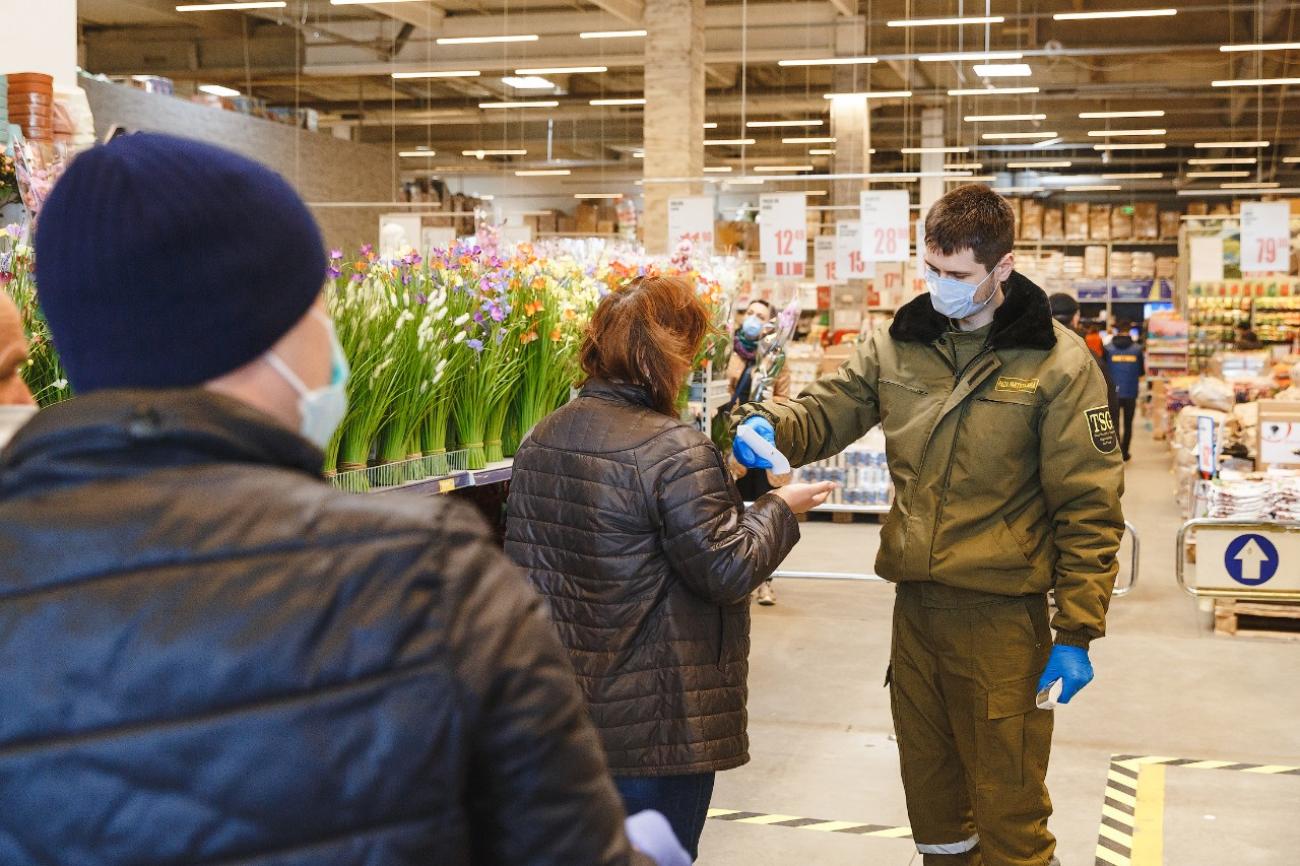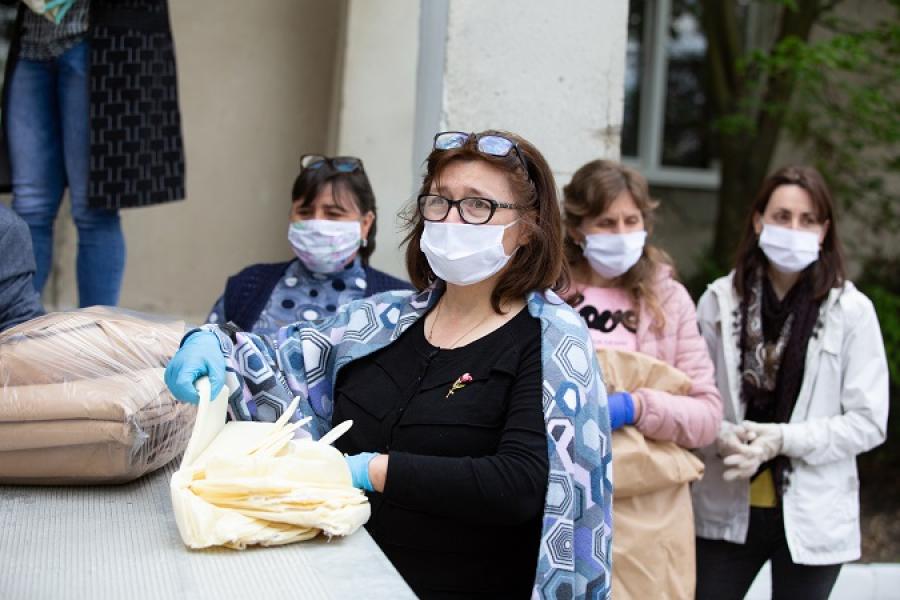Behind the Scenes: Ensuring Information about COVID Reached All Citizens

In Moldova, the first confirmed case of COVID-19 was registered on 7 March, followed by a lockdown and declaration of a public health emergency.
At that time, the Ministry of Health, Labour and Social Protection (hereinafter MHLSP) set up a Task Force on Risk Communication to develop and guide the communication of national public entities on COVID-19 outbreak. The Resident Coordinator Office, along with two other UN agencies, UNICEF and WHO, and the relevant line ministries, are members of the Task Force.
Cristina Stratulat, MHLSP Communication Advisor, has been leading this communication group for the past six months. She did the impossible when, during the complete lockdown, with people ‘learning’ how to use online tools for meetings, she brought all communicators and their expertise around the table to discuss and design a communication campaign on COVID-19 that would meet the country’s needs and inform the citizens about the risks, thus enabling them to make the right decisions, so that to stay healthy and protect their lives.
“During the past six months (March-September – editor’s note), the communication campaign on COVID-19 has passed through different stages and faced many challenges. But we couldn’t give up, even though sometimes it was tougher than I had expected, since the well-being of Moldovan citizens was at stake and dependent, to a greater extent, on accurate and timely communication,” Cristina say

Photo: Cristina Stratulat (in the middle) , Advisor of the MHLSP on Communication, at WHO-EU event on donation of protective equipment.
“We observed how other European countries were building their communication and inspired ourselves, taking over best practices. At the same time, we had to be creative and come up with new ideas on how to disseminate the messages and make sure that every citizen knew his share of responsibility in our common fight against the COVID-19 pandemic. For example, in rural areas we ‘turned’ the community leaders and mayors into communication channels and asked them to talk to their community members, especially with the elderly or those who had no or limited access to internet. “

The United Nations in Moldova was actively involved in COVID-19 preparedness planning prior to the declaration of a Public Health Emergency of International Concern. It has been in constant communication with the Government of Moldova and MHLSP, offering support in three main areas: health system preparedness, technical support and capacity building, and information and communication on COVID-19.
“We knew what we had to communicate, how to do it, and we had the needed resources. Nevertheless, the challenge was there – to make sure no one was left behind and disseminate the information to all vulnerable groups, which usually remain uncovered when you have a ‘race’ against time. To address this, we translated all information materials into the minorities’ languages, made them easy to understand and easy to read, targeting especially the elderly, and printed floor stickers for post offices and groceries in villages, to make sure the distance was kept. We are not safe until all of us are safe, so it was essential to have all stakeholders on board, from local authorities to businesses, at national and local levels, and to communicate the same messages.“
With UN Moldova support, there were printed over 2,500,000 flyers, posters, floor stickers, banners, billboards and developed 15 short videos for broadcasting on TV and social media, and 5 audio spots to be aired on radio channels in Romanian, Russian, Romani and Ukrainian languages.
According to the first study on citizen perception of and attitudes to COVID-19 outbreak, carried out by WHO Moldova, over 90% of the population know about the risks and understand how to protect themselves. At the same time, almost 70% of the population inform themselves very often on the pandemic situation, protection measures and restrictions imposed.
As of now, the Republic of Moldova registers over 160.000 people infected, witnessing a steady increase in positive cases.

